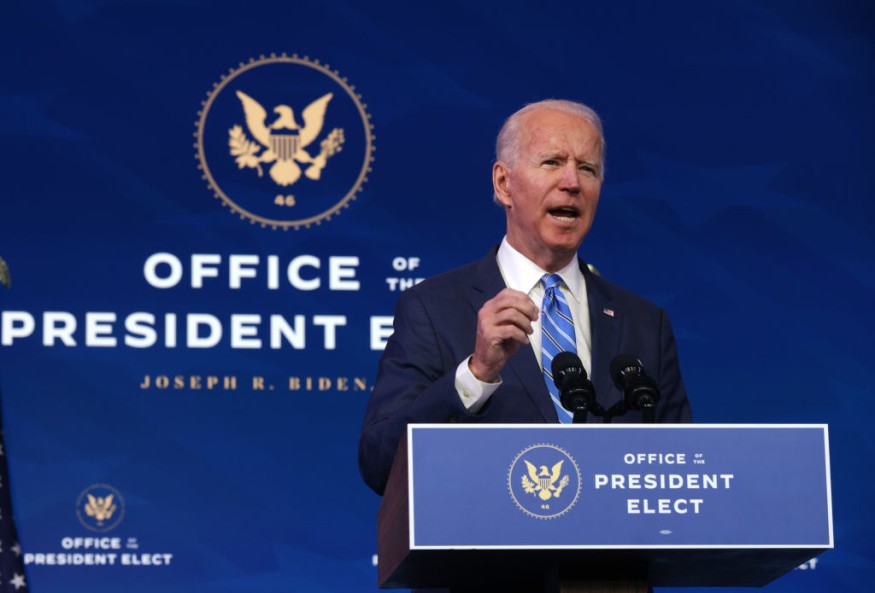Biden Unveils $1.9 Trillion COVID-19 Relief Plan: Here's What's in It

President-elect Joe Biden unveiled his $1.9 trillion COVID-19 plan on Thursday in a bid to address pandemic-related issues such as speeding up vaccine rollout and sending out financial help to those struggling with the economic fallout.
The legislative proposal called the "American Rescue Plan" would meet Biden's goal of administering 100 million vaccines by the 100th day of his administration.
According to an Associated Press report, these would be all done while advancing his notion to reopen most schools in spring.
Related story : Here's How Biden Would Fight the COVID-19 Pandemic in US
Inside Biden's COVID-19 Relief Plan
The proposal includes $1,400 checks for eligible beneficiaries, which on top of $600 provided in the most recent coronavirus bill, bringing the total to $2,000.
Biden also wanted to increase the federal weekly unemployment benefit to $400 and extend it until September.
The plan will also increase the federal minimum wage from $7.25 to $15 per hour, extend the eviction and foreclosure moratoriums until September, make the Child Tax Credit fully refundable for the year, and expand the credit to $3,000 per child or $3,600 for kids under six years old.
Lincoln Journal Star reported that around $50 billion would go to COVID-19 testing and $20 billion on a nationwide vaccine program that would offer free vaccinations to all U.S. residents regardless of immigration status.
It also includes $350 billion in funding assistance for state and local governments, $20 billion for public transit agencies, and $170 billion to help schools open and meet students' academic and mental health needs, especially in K-12 schools and higher education institutions.
There would also be billions of funds for emergency housing assistance and low-interest loans to finance small businesses.
Meanwhile, Biden continued to ask the public to wear masks, practice social distancing, and avoid large gatherings. Public health expert and emergency physician Dr. Lena Wen said that Biden's biggest challenge would be to sway the American people's hearts and minds to follow his lead.
U.S. Vaccination Effort
Certain city mayors have implored the incoming administration of Biden to bypass state governments. They wanted the vaccine supplies to be directly sent to them.
Around three dozen mayors of cities from New York, Los Angeles, Chicago, and Houston wrote a letter to Biden regarding the vaccine supplies.
"While it is essential to work with state and local public health agencies, healthcare providers, pharmacies, and clinics, there is a need to be nimble and fill gaps that are unique to each local area," the letter read as reported by Reuters.
The letter added that mayors have the ability and expertise to build the local partnerships needed and fill the gaps, especially when it comes to reaching disadvantaged communities.
Stock Market
As Biden unveiled his $1.9 trillion COVID-19 relief plan, U.S. stock markets fell on Thursday. The Dow Jones Industrial Average fell by 0.22 percent, while S&P 500 decreased by 0.38 percent, and Nasdaq Composite by 0.12 percent.
According to a Fox Business report, the market came down late in the session after headlines indicated that Biden's proposal would total $1.9 trillion, which was less than $2 trillion that was earlier predicted that day.
Incoming Senate Majority Leader Chuck Schumer was initially seeking a $1.3 trillion COVID-19 relief package.
Subscribe to Latin Post!
Sign up for our free newsletter for the Latest coverage!

















